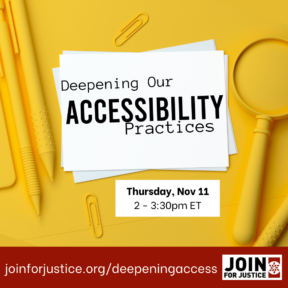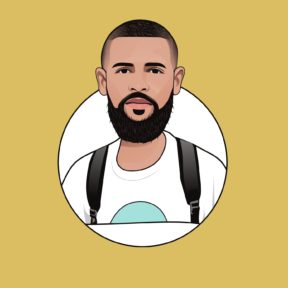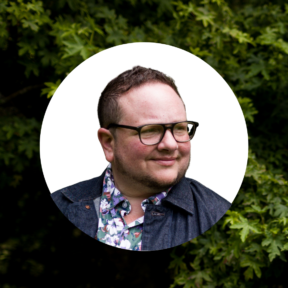
The global pandemic initiated a wave of effort to make it possible for many people to work, participate at school, and connect with spiritual communities remotely. Suddenly, access measures that people with disabilities had been denied for years became a matter of course. At the same time, many of our most creative and adaptive responses to the pandemic were time-tested practices within disability culture, including care pods, mutual aid networks, and inclusive practices for gathering remotely.
Our speakers will share stories about how they have seen access play out in Jewish and organizing communities, how the burden of the pandemic is falling on vulnerable populations, and opportunities to connect across movements by incorporating a disability justice framework in our organizing.
On this call, through a presentation followed by a moderated conversation between our powerful speakers, we’ll learn how ableism impacts all of us, why it matters to bring access-centered culture to all of our organizing and communities, and how we can put access at the center in the next phase of the pandemic. Join us for this session that adds nuance to how we conceive of access and invites us to connect accessibility to our broader work in justice movements.
Thursday, November 11, 2-3:30pm ET
Captioning and ASL interpretation will be provided for this session. Please note in your registration if you will need ASL, as well as any additional access needs. We will reach out if we have questions.
Speakers
 Dustin Gibson‘s work addresses the nexus between race, class, and disability. He’s worked on-the-ground with Centers for Independent Living (CIL) in Southwest PA with a focus on deinstitutionalization and youth self-determination. His work in the national CIL network supported youth peer support networks and policing/incarceration + disability.
Dustin Gibson‘s work addresses the nexus between race, class, and disability. He’s worked on-the-ground with Centers for Independent Living (CIL) in Southwest PA with a focus on deinstitutionalization and youth self-determination. His work in the national CIL network supported youth peer support networks and policing/incarceration + disability.
He’s the Access, Disability and Language Justice Coordinator at PeoplesHub, a Peer Support Trainer with Disability Link in Georgia, a board member with Straight Ahead and HEARD, and a founding member of the Harriet Tubman Collective, Us Protecting Us in Atlanta, GA, and the Policing in Allegheny County Committee.

Elliot Kukla (he/they) is a rabbi, chaplain, author, artist, disability activist, and a trans/non-binary educator. His writing appears in many places including The Forward, The Body is Not an Apology, and regularly in The New York Times and Sunday Review. He was the first transgender rabbi ordained by a mainstream movement, the Reform Movement’s Hebrew Union College Los Angeles campus in 2006. His policies and prayers for trans and non-binary people are used across the Jewish world and his work is frequently featured in the media including on Democracy Now, NPR, and National Geographic. For the past 15 years he has offered spiritual care to those who are dying or bereaved; his current work is focused on disabled and queer wisdom for adapting to this era of planetary transition. He lives in Oakland with his partner, their kid, two Boston Terriers and a cat named Turkey.






